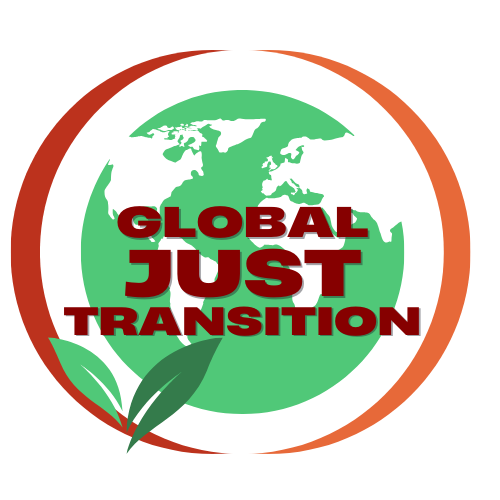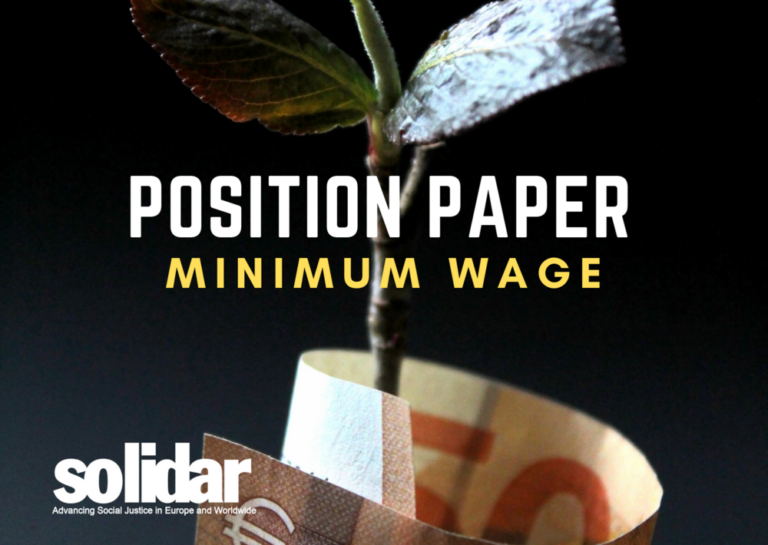Shaping the Social Europe we want ahead of the 2024 European elections
On 22 May 2024, SOLIDAR together with Pour la Solidarité and Smart debated over the future of Social Europe with civil society representatives and Belgian candidates to the European elections.
As the 2024 European Elections approach, the call for a Social Europe is louder than ever. With 88% of Europeans valuing social policies and prioritizing the fight against poverty and exclusion, this election is a critical moment to shape a fairer, more inclusive EU. What’s the future of Social Europe?
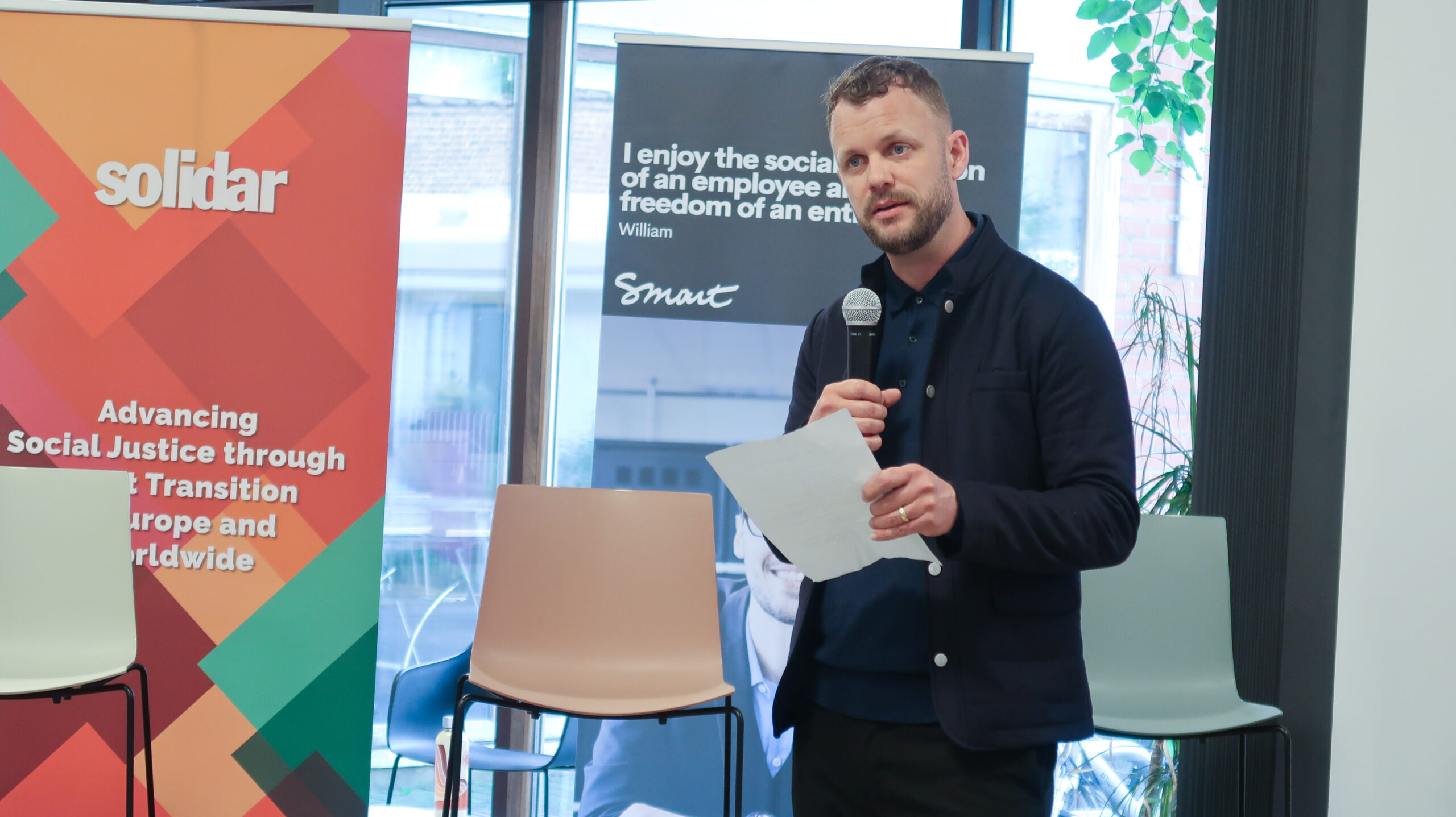
“It’s time to lead a radical transformation of our society: accelerate the ecological transition, promote social justice, advance a sustainable economy, strengthen our democracies.”
Mikael Leyi, Secretary General of SOLIDAR
As an introduction, Carlos Roldan, the coordinator of social policies at SOLIDAR, presented the organisation’s manifesto, highlighting the six major areas of transformation proposed for Europe: a socially just transition, a redistributive and well-being-centered economy, a rights-based and solidarity-driven approach to migration, an inclusive and fair digital revolution, a united front against racism, fascism, and totalitarian forces, and a strong civic space.
We need to promote a social economy based on solidarity and well-being, fighting discrimination and eradicating poverty. This requires significant private and public investments, fair taxation, and strengthening the European social model for a good life for all. We must also consider the global impact of European policies to promote worldwide solidarity and well-being.
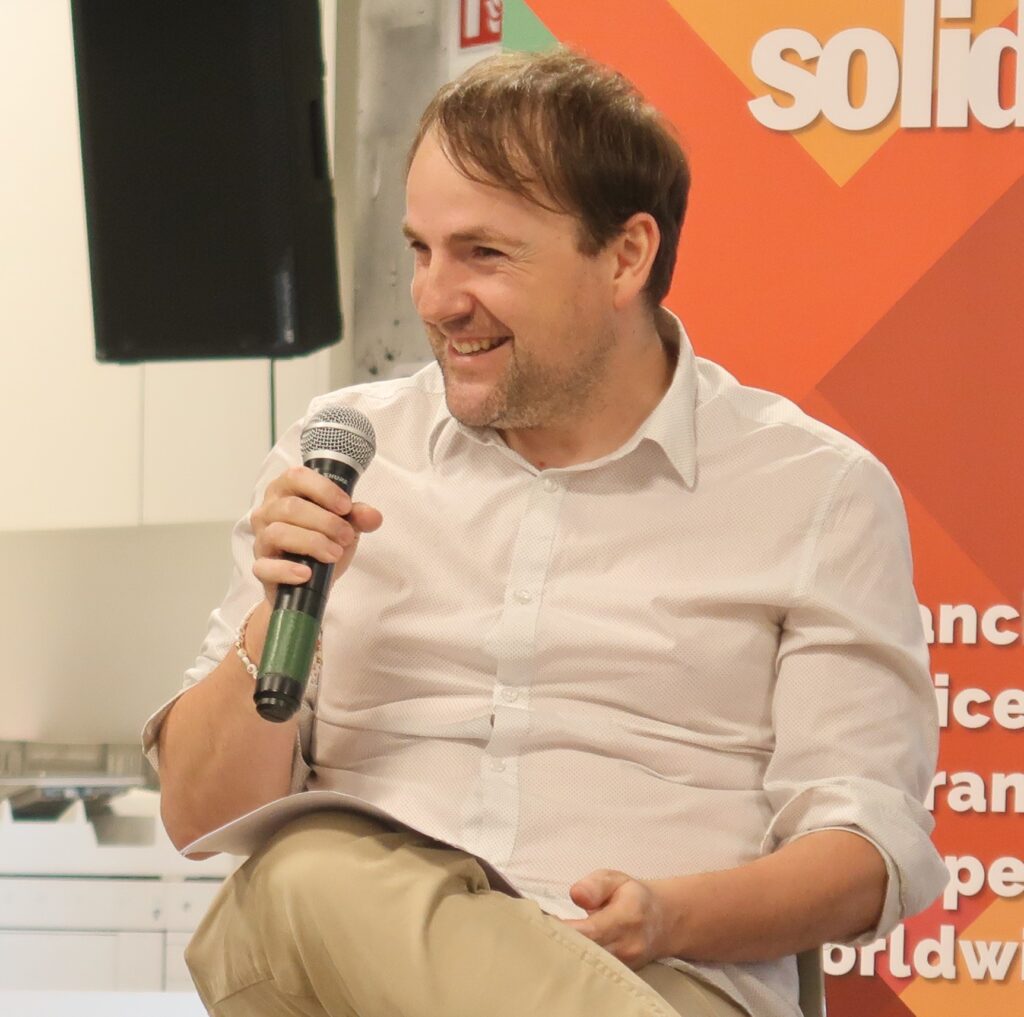
With the candidates Stéphanie Lepczynski from Ecolo, Roland Bourgeois from DéFI, Mounir Laarissi from Les Engagés and Duygu Celik le Parti Socialiste, 4 different topics were addressed: employment, social economy, just transition and extreme poverty. Each topic was presented and introduced by a representative of civil society: Diana Dovgan from CECOP, Pascale Zoetaert from ConcertES, Andrea Casamenti from SOLIDAR and Sébastien Roy from Samusocial. The political representatives were then able to present their analysis and defend their organisation’s proposals for the next mandate of the European Parliament.
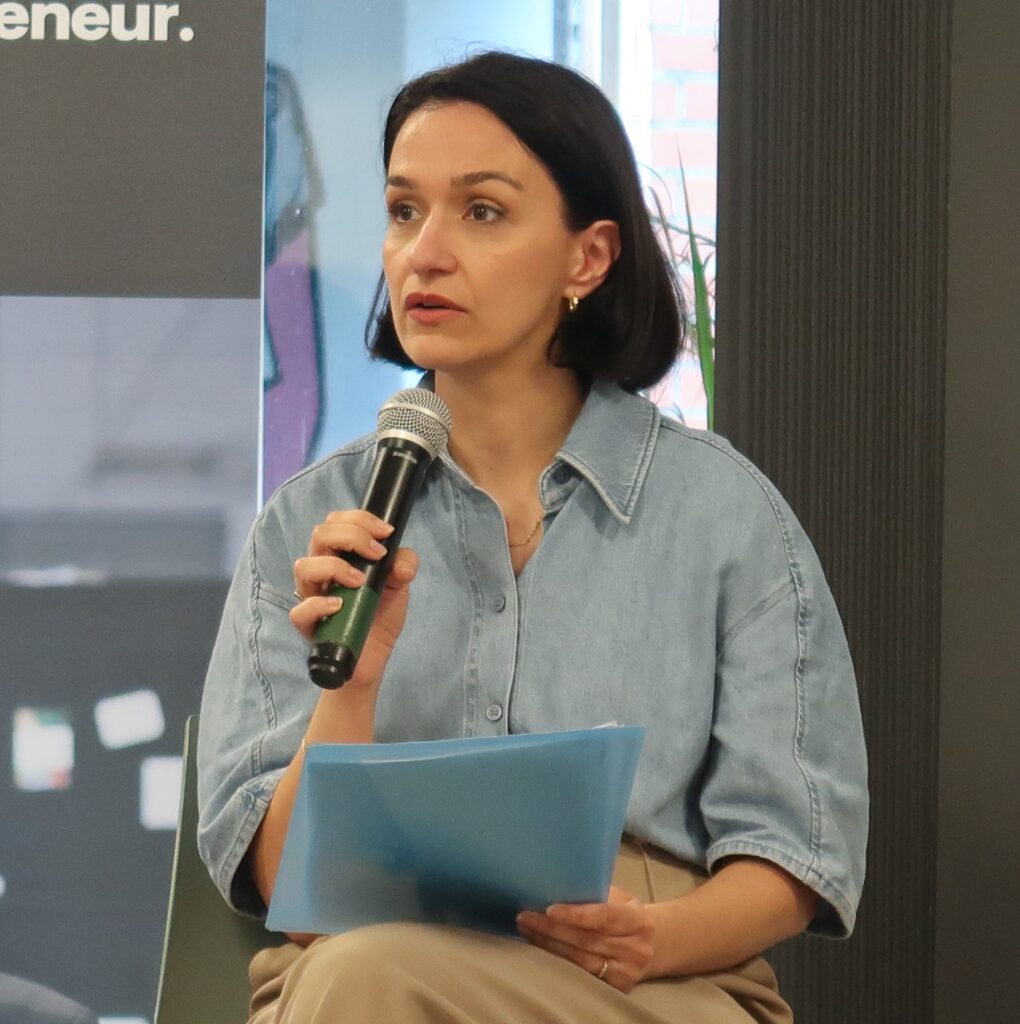
Good jobs for everyone
Even if employment is not a EU exclusive competence, Brussels still plays a key role in making sure that everyone can access good jobs.
Diana Dovgan from CECOP recalled the gradual deterioration of the working conditions in Europe particularly with the emergence of numerous precarious contracts. She pointed out that in recent years, measures have been adopted to combat these phenomena: the directive on minimum wages, or the directive on working conditions in platform work.
She then questioned the candidates on their proposal and commitments to improve working conditions.
Delivering a social economy on the ground
The social economy appears as a desirable model for evolution within the European Union, as it addresses many persistent problems in our societies: unemployment, the search for meaning in work, wealth redistribution… The European Union has repeatedly advocated for this development, like this Council’s recommendation from 2023 to guide member states in settling conditions favourable to the development of the social economy.
However, Pascale Zoetaert from ConcertES noted that some of the political forces present at the event kept on advocating for austerity measures which seemed to be for her a contradiction with the development of the social economy.
She therefore asked them how they envisioned concrete actions to ensure that all declarations and texts on the social economy would not remain abstract words.
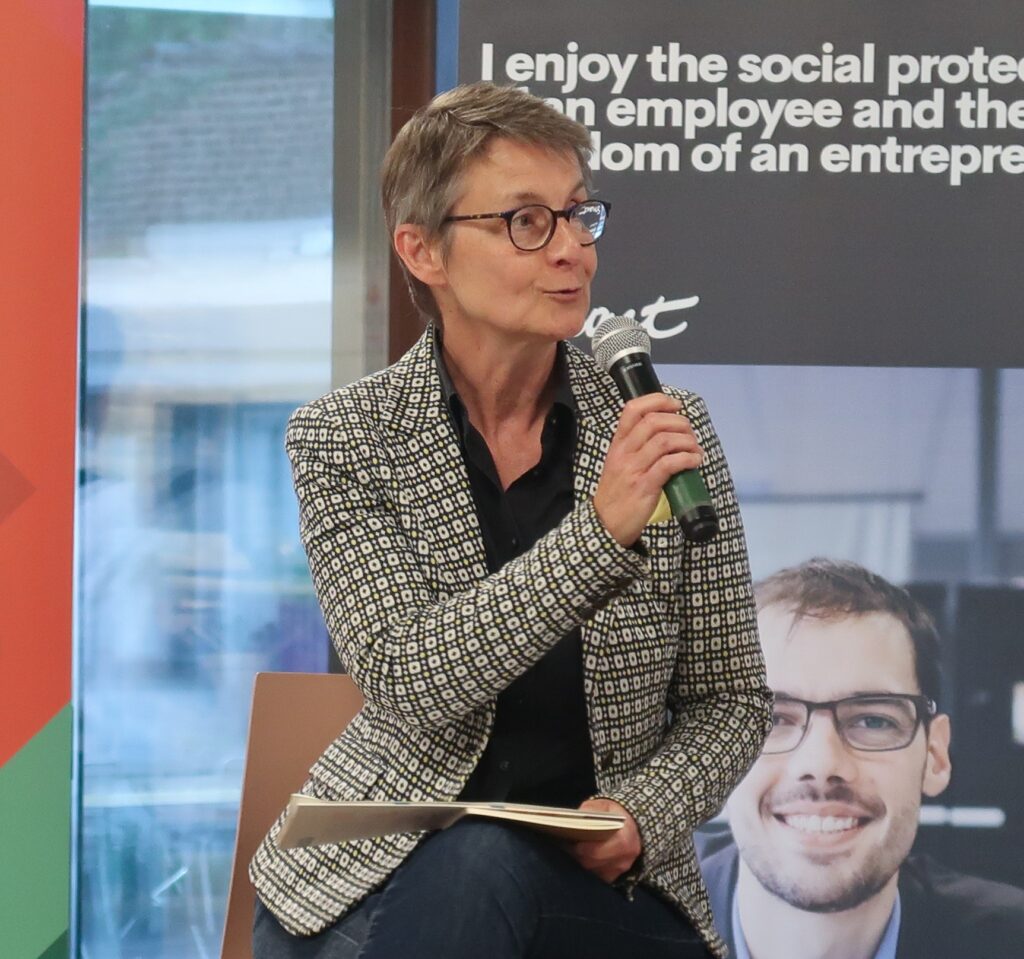
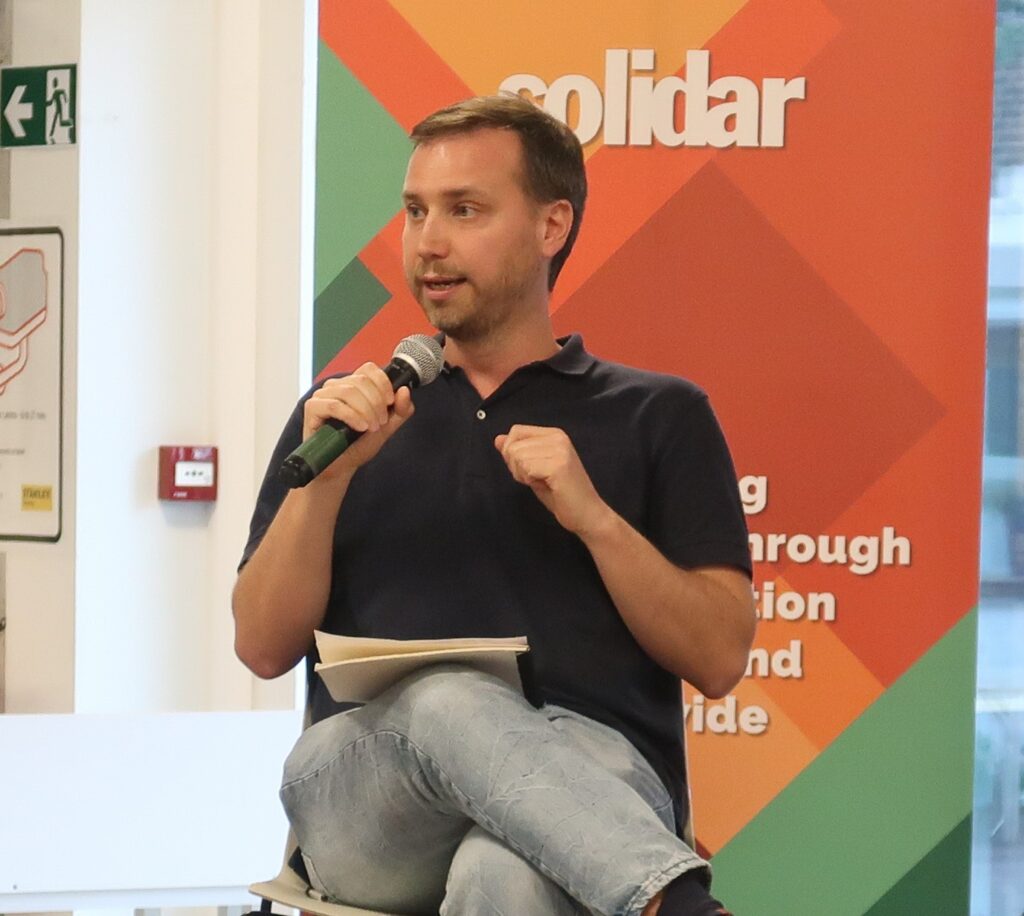
A Just transition for all
Europe is the continent that is warming the fastest. The consequences of this climate change do not and will not affect each of us in the same way. The socio-economically vulnerable will be hit the hardest.
Andra Casamenti of SOLIDAR emphasized that it is important to consider the social impacts of European climate and environmental policies. The transition must be fair not only for Europe but also globally.
The candidates were invited to present and explain their commitments to this just transition.
Fighting Extreme poverty
In 2021, more than 21% of the EU population was at risk of poverty or social exclusion. Sébastien Roy, member of Samusocial, reminded that among those facing extreme poverty, many are undocumented asylum seekers, and the refusal to regularise their status is often the cause of their precariousness. He also pointed out that the battle to defend regularisations in the public opinion seemed to be lost.
Therefore, he wondered how the candidates would defend the importance of these regularisations. This debate also reached the question of drug consumption and the question on how to fight it when penalisation appears to be useless.
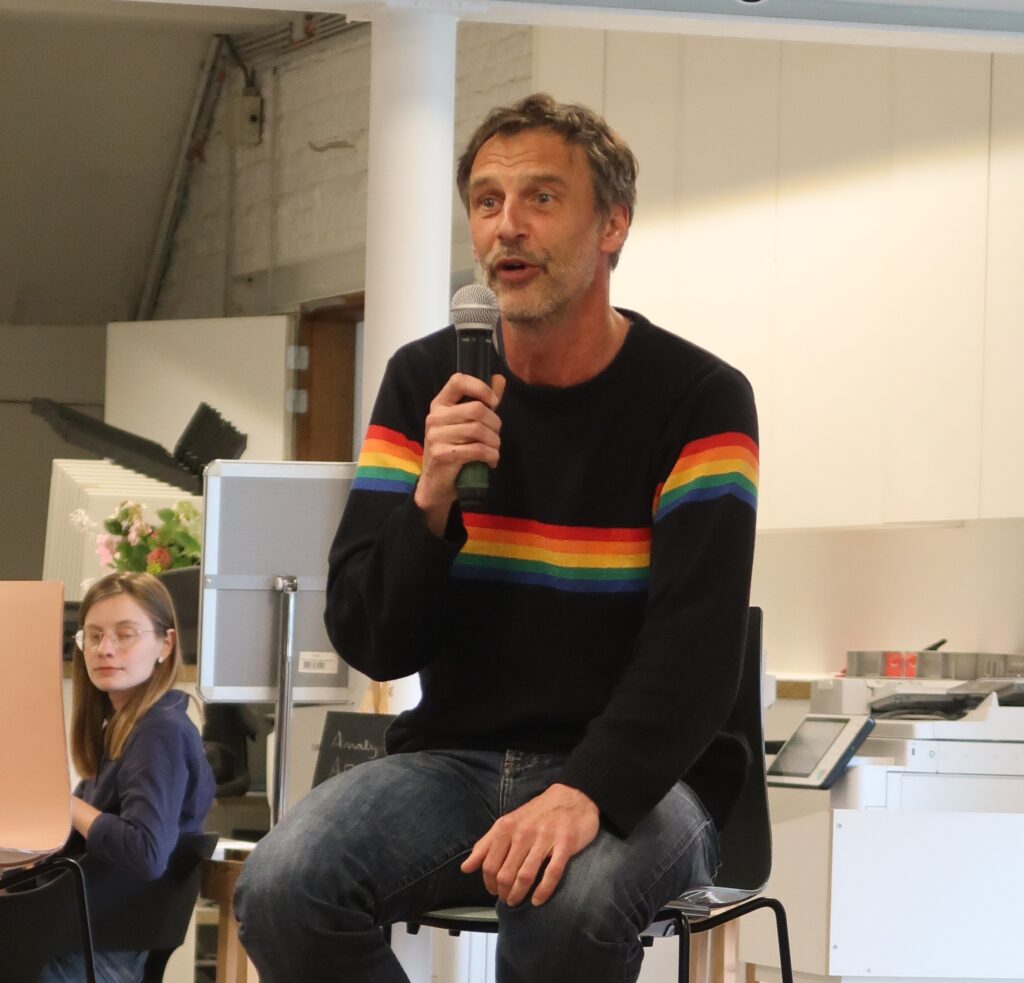
Go vote at the next European Elections on June 6-9!
The 2024 European Parliament elections on June 6-9 come at a critical time. Here is a chance to turn all crises and issue addressed in this debate into opportunities for reshaping the future.
SOLIDAR has been mobilising to engage progressive voters and advocate for proposals aimed at deepening the ecological transition, strengthening democracy, increasing social justice, and moving away from the exploitative economic model.



